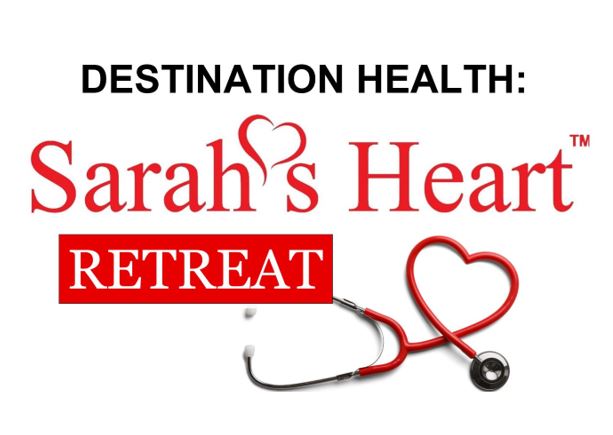
Phytonutrients: Building Immunity with Deep Colors
March 21, 2018
Transform & Prevent Cardiovascular Disease: Sarah’s Heart™ Retreat, coming April 2020! Join our email list to receive more information.
July 19, 2019The Healing Power of Compassion & Gratitude

Practicing gratitude, the simple reminder to count your blessings, can dramatically affect your life. Gratitude has been shown to lower blood pressure and improve your immune system and your sleep. This mind-body practice connects your mindset and your biochemistry. The result is enhanced health and well-being.
The practice of gratitude is associated with lower levels of LDL (bad cholesterol) and higher HDL (good cholesterol), as well as lower blood pressure both at rest and under elevated stress. Research shows that gratitude lowers levels of C-reactive protein, a marker of inflammation linked to heart disease and cognitive decline.
By measuring heart rate variability, we can analyze how the heart responds to stress and emotions. Negative emotions like rage and frustration lead to increased disorder in the autonomic nervous system and the heart’s rhythm. Positive emotions like appreciation and love produce heart-rhythm coherence, inner harmony and increased health. Since the heart is the most powerful oscillator in the body, the rhythm set by the heart is capable of entraining other organs to oscillate in synchronicity, much like the pendulum of a clock.
Mind states can even alter the levels of immunoglobulin A(IgA), a key player in the body’s immunological defense. A HeartMath study demonstrated that simply watching a compassion-inducing video of Mother Theresa caused an upswing in IgA.
Research shows that those practicing gratitude also are healthier, exercise more, have fewer physical problems and feel better overall – and those with a strong disposition toward gratitude have the capacity to be more empathetic and generous toward others.
So, begin with these two simple steps:
- Start a gratitude journal: Studies show that daily journaling results in higher reported levels of the positive states of alertness, enthusiasm, determination, attentiveness, and energy. Journaling is a great way to bring the good things into focus, shifting your thinking from the negative to a more positive perspective.
- Make your entries at least once or twice each week. It is better to make a conscious decision to be happier and write with motivation a couple of times per week than to quickly jot down 5 things each day. It is in the elaboration, reflection and focus that shifts begin to happen.
- Focus on the people to whom you are grateful as much as events or things.
- Reflect on how your life would be without those blessings.
- Affirm the present moment and release your worries. Spiritual leaders never go into the future attaching emotionally to events that may or may not occur. Every time you begin to worry, ask yourself, “Am I all right?” Then declare, “I am all right, right now.” Feel it to your core. Each affirmation will create a positive feeling and help you let go of fears.
Learn more:
The Current and Future Role of Heart Rate Variability for Assessing and Training Compassion.
https://www.ncbi.nlm.nih.gov/pmc/articles/PMC5340770/
Cardiac coherence, self-regulation, autonomic stability, and psychosocial well-being.
https://www.ncbi.nlm.nih.gov/pmc/articles/PMC4179616/
The effects of optimism and gratitude on adherence, functioning and mental health following an acute coronary syndrome.
https://www.ncbi.nlm.nih.gov/pubmed/27796252
A pilot randomized study of a gratitude journaling intervention on HRV and inflammatory biomarkers in Stage B heart failure patients.
https://www.ncbi.nlm.nih.gov/pmc/articles/PMC4927423/



